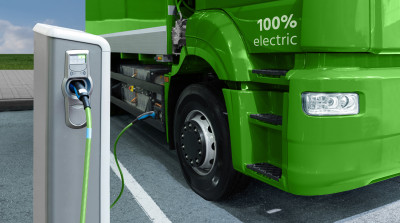Alternative fuels present challenges for transport industry
June 13, 2023
 Electric vehicles (EVs) are one of the fastest growing segments in the consumer transportation market, but the technology has been met with some hesitation by the transport industry. Environmental concerns and mounting government regulations favor the adoption of alternative fuels. On the other hand, such a major shift would require industry-wide investment in infrastructure and new equipment. With these challenges in mind, are EVs and other alternative fuels the future of transportation, or will fossil fuels continue to reign supreme?
Electric vehicles (EVs) are one of the fastest growing segments in the consumer transportation market, but the technology has been met with some hesitation by the transport industry. Environmental concerns and mounting government regulations favor the adoption of alternative fuels. On the other hand, such a major shift would require industry-wide investment in infrastructure and new equipment. With these challenges in mind, are EVs and other alternative fuels the future of transportation, or will fossil fuels continue to reign supreme?
Jacqueline Gelb, Vice President of Energy and Environmental Affairs with the American Trucking Associations (ATA) is one of many voices leading the conversation on the challenges related to the adoption of alternative fuels. A large part of her role involves educating policymakers on the needs of transportation stakeholders to help guide decisions that are beneficial to the industry and the nation’s supply chain.
“Trucking is the backbone of the country,” says Gelb. “Trucking moves America, so we want to make sure that we have successful regulations and successful policies that are going to work for our industry.”
What challenges does the transport industry face with regulators in the shift toward alternative fuels? Watch the latest episode of the Stay In Your Lane Podcast to learn more
The average owner operator and even large fleet managers may be unaware of evolving government regulations that carry major implications for the transport industry. As the conversation surrounding reduced emissions and ecologically friendly vehicles grows, Gelb and the ATA are speaking up for truckers to help facilitate change in a realistic and positive manner.
“We’re looking at a framework to transition our industry into power sources that are still proving themselves in the fleet context,” says Paul Ruiz, Director of Energy & Environmental Affairs at the ATA. “A lot of the lawmakers on Capitol Hill think that [light duty and heavy duty] are the same, and they’re not.”
The decision-making process of a fleet manager choosing to order a vehicle is fundamentally different from that of the average consumer selecting a personal vehicle. Highlighting these important distinctions for lawmakers is at the heart of the work Gelb and Ruiz are doing each day.
The vast majority of our nation’s trucking fleet is made up of small owner operator outfits. Regulations that would require the adoption of new fuel technologies represent a major investment for thousands of small businesses. If these new technologies fail for any reason, the consequences would be disastrous for owner operators who have staked their business on a defunct alternative fuel.
“If we get this wrong, it’s catastrophic for our industry. It’s catastrophic for our country’s supply chain,” says Gelb. “We want regulations that are going to be set up for success.”
Despite their best efforts, Gelb and her colleagues fear that policymakers are moving toward a “one-size-fits-all” approach to alternative fuels for the transport industry, similar to legislation in the light-duty market. Highlighting the challenges and the different use-cases faced by truckers is an uphill battle with legislators who are focused on an all-electric future.
Historically, the transport industry has been a willing partner in finding solutions to ecological challenges. Continued success for both the industry and the environment will require policymakers to keep an open mind to truckers’ unique needs.
“The trucking industry has a fantastic story to tell on the environmental side,” says Gelb. “We get beaten up a lot, but the industry has made tremendous strides on cleaning up tailpipe emissions. We’ve been partners with our regulators because we want successful regulations.”
Will policymakers keep an open mind to the needs of the industry when regulating the shift to alternative fuels? Subscribe to the Stay In Your Lane Podcast from Triple T Transport to stay up to date with the latest developments in this and other important stories.














